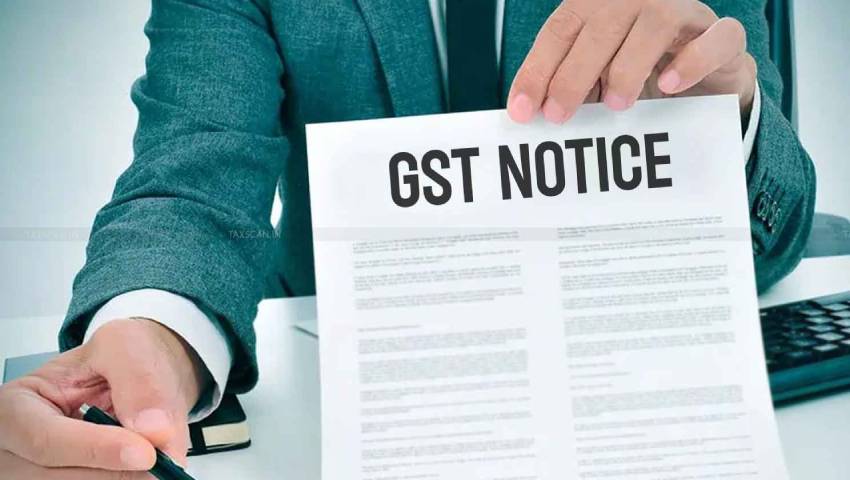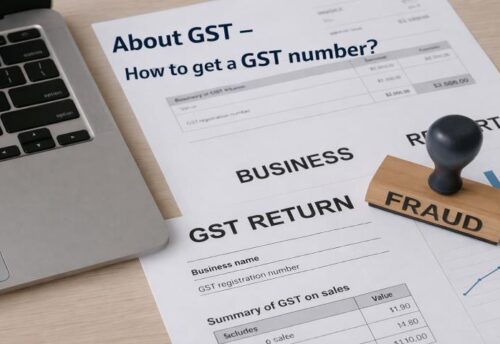
- 12/08/2025
- MyFinanceGyan
- 760 Views
- 2 Likes
- GST, Tax
GST Notices: Types, Reasons, and How to Respond Without Penalty
The Goods and Services Tax (GST) has simplified India’s indirect tax structure. However, compliance with GST rules is mandatory for all registered taxpayers. Failing to follow GST laws can invite a GST Notice from the tax department.
Receiving a GST notice can be stressful, especially for small businesses and startups. But not every notice means you are in trouble — sometimes, it’s simply a call for clarification. Understanding the types, reasons, and correct way to respond to a GST notice can save you from unnecessary penalties and legal issues. At My Finance Gyan, we keep you updated with the latest GST rules and compliance requirements so you can handle notices confidently and avoid penalties.
What is a GST Notice?
A GST Notice is an official communication sent by the GST department to a registered taxpayer. It can be sent for various reasons, such as incorrect tax filing, a mismatch in returns, late filing, excess Input Tax Credit (ITC) claims, or suspected tax evasion.
A GST notice can come in different forms, each serving a specific purpose. The aim could be to seek clarification, demand tax dues, or initiate an investigation. In short, if you receive a GST notice, it means the GST authorities need your attention for a specific compliance issue.
Understanding GST Notices in India: A Complete Introduction
In India, GST notices are issued under various sections of the GST Act. These notices can be:
- Informational– To seek additional details or clarification.
- Warning-based– To inform you about possible violations and allow you to rectify them.
- Demand notices– To recover unpaid tax, interest, or penalty.
The GST department uses an electronic communication system, so you may receive these notices via your GST portal account and registered email address.
What Is a GST Notice and Why Do You Receive One?
A GST notice is not always a sign of wrongdoing. You may receive one due to:
- Genuine errors in your GST return filing.
- Mismatch between your sales data and that of your buyers.
- Delayed return submission.
- Excess claim of Input Tax Credit (ITC).
- Random scrutiny by the department.
In some cases, even a small mistake can trigger a notice. That’s why timely action and proper documentation are important.
Different Types of GST Notices You Should Know:
Here are the most common types of GST notices issued in India:
Notice for Scrutiny of Return – Form GST ASMT-10
- Purpose: To inform taxpayers about discrepancies in GST returns.
- Action Required: Respond with clarifications or corrections within the given timeline.
Show Cause Notice – Form GST DRC-01
- Purpose: To demand an explanation for suspected violations such as tax evasion, incorrect ITC claims, or fraudulent invoices.
- Action Required: Submit a detailed reply explaining your position and attach supporting documents.
Demand Notice – Form GST DRC-07
- Purpose: To recover unpaid GST, interest, and penalties.
- Action Required: Make payment or dispute the claim with valid proof.
Summons – Section 70
- Purpose: To call the taxpayer or company representative for an inquiry or investigation.
- Action Required: Appear before the GST officer on the mentioned date with relevant records.
Audit Notice – Section 65
- Purpose: To inform you about a departmental audit of your GST records.
- Action Required: Please provide all requested documents and cooperate fully with the audit process.
Top Reasons Why You May Get a GST Notice:
The GST department may issue a notice for several reasons, including:
- Mismatch in GST Returns– Data in GSTR-1 and GSTR-3B does not match.
- Excess ITC Claim– Claiming more input credit than is eligible.
- Delayed Filing of Returns– Filing GSTR-3B or GSTR-1 late.
- Non-Payment of Tax– Failing to pay GST after filing returns.
- Wrong Classification of Goods/Services– Leading to incorrect GST rate application.
- Fake Invoices or Fraudulent Transactions– Suspected tax evasion.
- Non-Registration Despite Liability– Not registering for GST when required.
- High-Value Transactions without Proper Invoices– Triggering suspicion during data analytics by GST authorities.
GST Notice Formats & Forms:
In India, GST notices are issued in specific formats as prescribed under the GST Act. Each format has its own purpose and legal standing. Knowing these formats will help you understand the seriousness of the notice and the exact action required from your side.
- Scrutiny of Return Notice (Form GST ASMT-10): Issued when the GST department finds discrepancies in your returns, such as mismatches between GSTR-1 and GSTR-3B. The purpose is to seek clarification and allow you to correct any errors.
- Show Cause Notice (Form GST DRC-01): Sent when the department suspects tax evasion, wrong ITC claims, or other violations. It asks you to explain your position and provide supporting evidence within the given timeline.
- Demand Notice (Form GST DRC-07): Issued to recover unpaid GST dues along with applicable interest and penalties. You are required to either pay the amount or challenge it with proper proof.
- Summons (Section 70): A formal order requiring you or your company representative to appear before the GST authorities for inquiry or investigation. You must bring relevant documents and cooperate with the process.
- Audit Notice (Section 65): Serves as an intimation that your business records will undergo a departmental audit to verify GST compliance. You need to provide all requested documents and maintain full cooperation.
Example: If your GSTR-1 shows sales of ₹12 lakh but your GSTR-3B reports only ₹10 lakh, you may receive a scrutiny notice (ASMT-10) asking for clarification. Similarly, if you delay payment of GST, a demand notice (DRC-07) will be issued requiring immediate settlement.
In short, every GST notice format carries a specific purpose. Understanding the type of notice you have received will help you respond correctly and avoid unnecessary penalties.
How to Respond to a GST Notice Step-by-Step?
- Step 1: Read the Notice Carefully: Check the type of notice, date of issue, and deadline for reply.
- Step 2: Understand the Reason: Identify whether it’s for a mismatch, non-payment, audit, or investigation.
- Step 3: Gather Documents: Keep sales invoices, purchase invoices, GST returns, bank statements, and any relevant proof ready.
- Step 4: Prepare a Proper Reply
- Clearly explain your position.
- Attach supporting evidence.
- Step 5: File Reply on GST Portal: Log in to the GST portal → Go to Services → User Services → View Notices and Orders → Reply.
- Step 6: Follow Up: Keep track of your reply status on the GST portal. Tip: If you are unsure, consult a GST expert or tax consultant to draft a professional reply.
What Happens If You Ignore a GST Notice?
Ignoring a GST notice can lead to:
- Heavy penalties and interest charges.
- Freezing of your GSTIN (registration).
- Legal proceedings, including prosecution in serious cases.
- Recovery of tax dues by seizing bank accounts or assets.
The law provides a specific timeline to respond to each type of notice. Failing to respond within the deadline will weaken your defence.
Best Practices to Avoid GST Notices and Penalties:
Here’s how you can avoid GST notices:
- File Returns on Time– Always file GSTR-1, GSTR-3B, and annual returns before the due date.
- Maintain Accurate Records– Keep invoices, purchase records, and bank statements updated.
- Reconcile Regularly– Match your GSTR-1, GSTR-3B, and purchase register.
- Avoid Excess ITC Claims– Claim only eligible ITC.
- Stay Updated with GST Rules– Rules change often; follow updates from My Finance Gyan for the latest compliance guidelines.
- Seek Professional Help– For complex transactions, hire a GST consultant.
Final Thoughts: Stay GST-Compliant and Stress-Free
Getting a GST notice is not the end of the world. Most notices are manageable if you respond on time with proper documents.
The key is to stay compliant, file accurate returns, and keep your financial records in order. By understanding the types of GST notices, reasons for issuance, and the correct way to respond, you can protect your business from penalties and legal issues.
At My Finance Gyan, we bring you the latest updates and information on GST compliance, so you can stay ahead of the curve.
Why Choose a GST Expert or Consultant for Notice Handling?
A GST expert can:
- Analyse the notice and identify the exact issue.
- Draft a strong and compliant reply.
- Communicate with GST officers on your behalf.
- Prevent penalties by ensuring proper documentation.
If you need legal or GST notice handling assistance, choose Startup Portal — your trusted partner for business and GST compliance services.



